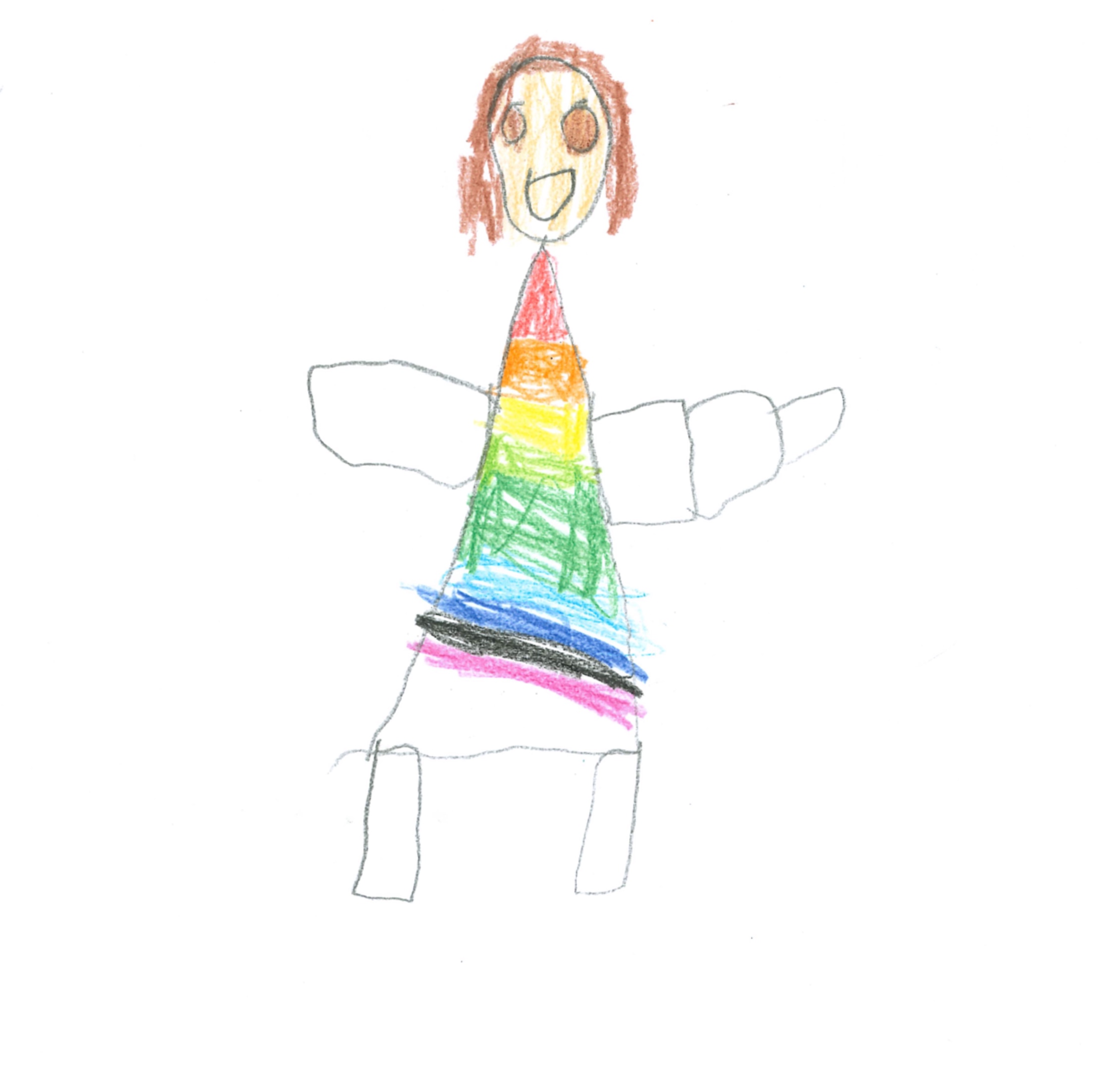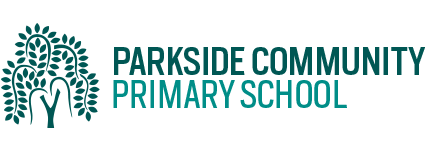SEND Information Report
Welcome to our SEND Information Report. This report was written in collaboration with the teaching team and parents at Parkside.
A special mention of thanks to Year 2 who provided the illustration on the theme ‘The people who support us at school’- can you recognise who is who?
How does Parkside School know if children need extra help?
 At Parkside School, we identify children who may need extra help through the ongoing cycle of teacher assessment in everyday classroom practice. We consider the children’s communication and interaction needs, cognition and learning needs, social, mental, and emotional health needs, as well as sensory or physical needs. Formal assessments are also updated each term and monitored by the Head, SENCO, and Senior Leadership Team. Teachers monitor the children’s progress and discuss any concerns with parents.
At Parkside School, we identify children who may need extra help through the ongoing cycle of teacher assessment in everyday classroom practice. We consider the children’s communication and interaction needs, cognition and learning needs, social, mental, and emotional health needs, as well as sensory or physical needs. Formal assessments are also updated each term and monitored by the Head, SENCO, and Senior Leadership Team. Teachers monitor the children’s progress and discuss any concerns with parents.
What should I do if I think my child may have special educational needs?
 If you think your child may have special educational needs, your first step is to discuss your concerns with the class teacher. All our staff members are trained to understand and support students with diverse learning needs and can provide valuable insights and guidance. Additionally, you can reach out to the SENCO or a member of the Senior Team for further assistance. Together, we can make a plan to better understand your child’s learning needs.
If you think your child may have special educational needs, your first step is to discuss your concerns with the class teacher. All our staff members are trained to understand and support students with diverse learning needs and can provide valuable insights and guidance. Additionally, you can reach out to the SENCO or a member of the Senior Team for further assistance. Together, we can make a plan to better understand your child’s learning needs.
How will school staff support my child?
 The first and best way to support your child is through high-quality teaching in the classroom. Ongoing assessment is used to identify gaps, and teaching is adapted to provide appropriate scaffolding, including the use of physical manipulatives, word banks, and technology tools like voice activated software and Clickr.
The first and best way to support your child is through high-quality teaching in the classroom. Ongoing assessment is used to identify gaps, and teaching is adapted to provide appropriate scaffolding, including the use of physical manipulatives, word banks, and technology tools like voice activated software and Clickr.
Teachers receive regular training to help use the most up to date strategies to support students with various additional needs.
 Where a student may experience less-than-expected progress, the class teacher will organise specific intervention programs or additional support, such as a same day intervention. We only utilise interventions that have an evidence base, and these may include in-class support from Teaching Assistants, adapted tasks or small group interventions.
Where a student may experience less-than-expected progress, the class teacher will organise specific intervention programs or additional support, such as a same day intervention. We only utilise interventions that have an evidence base, and these may include in-class support from Teaching Assistants, adapted tasks or small group interventions.
In the situation where your child is not responding to the additional support or intervention as we would expect, the teacher will meet with you to discuss adding their name to the SEND Register. This is a list of students who may have additional needs and will benefit from planned additional support. To record the cycle of support that we offer, a Learning Plan is written for all students on the SEND Register. This records the plan we agree together to support your child.

How will I know how my child is doing?
It is really important for us to work in partnership, so we will keep you updated about your child’s progress in a variety of ways.
 Staff are available before and after school, although if you need a longer chat, it is worth making an appointment through the office. Termly parent evenings offer opportunities to discuss your child’s progress in more detail, and you will receive a formal written report annually. If your child requires additional assistance, your child’s class teacher will discuss this with you, and progress will be reported back to you at termly consultation meetings or more frequently as necessary.
Staff are available before and after school, although if you need a longer chat, it is worth making an appointment through the office. Termly parent evenings offer opportunities to discuss your child’s progress in more detail, and you will receive a formal written report annually. If your child requires additional assistance, your child’s class teacher will discuss this with you, and progress will be reported back to you at termly consultation meetings or more frequently as necessary.
How will the learning and development provision be matched to my child’s needs? How will I be involved with discussions about, and planning for my child’s education?
 If your child is on the SEND Register, a Learning Support Plan will be written and reviewed with you at least termly. This will record the goals and support available for providing valuable insights that will inform teachers’ planning and provision in the classroom. Regular assessments, along with input from your child’s perspective help
If your child is on the SEND Register, a Learning Support Plan will be written and reviewed with you at least termly. This will record the goals and support available for providing valuable insights that will inform teachers’ planning and provision in the classroom. Regular assessments, along with input from your child’s perspective help
What specialist services and expertise are available at, or accessed by the school?
There are a range of services that are available to schools and parents from the Local Authority through the Local Offer:
 Integrated Services for Learning (ISL) is a multi-professional service working in five integrated area teams across the county helping schools, settings and families to improve outcomes for children and young people with additional and special educational needs.
Integrated Services for Learning (ISL) is a multi-professional service working in five integrated area teams across the county helping schools, settings and families to improve outcomes for children and young people with additional and special educational needs.
- Educational psychology: Psychologists help schools, settings and families to understand and manage a wide range of developmental issues and special educational needs
- Early Years SEND: The team works with children age 0-5 with a range of developmental difficulties and complex needs following a multi-professional approach with families at the centre.
- Communication and autism: This team provides specialist advice and intervention for children and young people with autistic spectrum conditions and/or speech, language and communication difficulties.
- Physical and sensory impairment: The team provides specialist advice and support for individual children with visual or hearing impairments or both, or physical disabilities.
- Access to education for refugees and travellers: The team supports families to access appropriate education for their children.
- Hertfordshire Steps: This is a positive approach to behaviour management which is grounded on sound evidence based practice. It provides consistency across all education phases and settings.
- Attendance: Attendance Improvement Officers work directly with children, their families and schools assessing difficulties and helping to develop practices and strategies to improve pupils’ participation in education. Our central team carries out statutory functions in relation to children of compulsory school age including Children Missing Education and Elective Home Education, as well as advising on school age employment matters and issuing performance licences.
- Education support for medical absence: The team supports children and young people who are unable to attend school temporarily because of medical reasons.
- Special Educational Needs (SEN): SEN officers work with a range of people including parents, carers, professionals from education, social care and health agencies, to ensure that the individual educational needs of children are met.
To access these services, we need to complete a referral form with you, identifying what the school has already put in place to support your child, and how we think the service might help.
What training have the staff supporting children with SEND had or are having?
 This academic year (2023-4), the staff will have undertaken training from:
This academic year (2023-4), the staff will have undertaken training from:
- Speech and Language Therapy team- 1:1 training to deliver specialist support for students with communication difficulties; small team training in SCERTS
- Autism team- a carousel of training
- Early Years Inclusion Team- advice and training in inclusion strategies for students with SEND
- Visual Impairment team- including braille support and access to learning.
- Guide Dogs for the Blind (Habilitation Team)- delivering awareness and best practice for support training
- Safeguarding training- Keeping Children Safe in Education update and Prevent training.
In addition, we will be looking at the Education Endowment Foundation’s recommendations for best practice in supporting students with SEND (5-a-day)
How can I help support my child’s learning?
We strongly believe that in order for children to achieve their potential partnership between parents and school is essential, and we are committed to supporting you in any way we can. You are welcome to speak to your child’s teacher or the SENCO with any concerns or questions.
There are also a range of services and specialist advice lines available to support you from the Local Offer. These professionals have expertise in a range of needs and have specific telephone numbers you can call:
- Specific Learning Difficulties (SpLD): 01442 453 920 every Thursday (term time only) 9.30am – 12pm
- Speech, Language, Communication and autism Needs (SLCA):01442 453 920 every Tuesday and Wednesday (term time only), 1.30pm – 4pm
- Neurodiversity Hub: 01727 833963 from Monday to Friday 9am – 1pm
email: supporthub@add-vance.org - Early years (0 – 5): 01442 453 920 every Wednesday (term time only) 9am – 12pm and Thurs 1.30pm – 4pm
- Physical and neurological impairment team (PNI): 01442 453 920 every Monday (term time only), 1.30pm – 4pm
- Education Support for Medical Absence (ESMA): 01442 454 802 (school hours, term time only) esmaenquiries@hertfordshire.gov.uk
- Children and young people’s therapy services. (Advice from occupational therapists, physiotherapists and speech and language therapists): 01923 470680 – select Option 3 for the therapy service. Callers then choose to use the service Advice Line (select 1) or to speak to an administrator (select 2). Or email cyptherapies1@nhs.net.
- School Nursing Duty Line: The HCT school nurse duty line is available every weekday and can support you with any concerns you may have about your child or children’s physical and emotional wellbeing. Tel: 0300 123 7572 (Monday to Friday 9am – 5pm)
How will my child be included in activities outside the classroom including school trips?
 Adaptations will always be made to ensure your child can access all the school offers, incorporating often simple changes to accommodate your child’s needs. Specific support, such as social stories may be utilised to prepare your child for upcoming activities and alleviate any anxieties they may have. Adult support will be provided as necessary to assist your child during activities and ensure their safety and comfort. It may be appropriate to create a Personal Support Plan to anticipate and address any potential issues that may arise outside of the classroom, enabling proactive planning and support tailored to your child’s individual needs. These measures collectively ensure that your child can fully participate in and benefit from activities beyond the classroom environment.
Adaptations will always be made to ensure your child can access all the school offers, incorporating often simple changes to accommodate your child’s needs. Specific support, such as social stories may be utilised to prepare your child for upcoming activities and alleviate any anxieties they may have. Adult support will be provided as necessary to assist your child during activities and ensure their safety and comfort. It may be appropriate to create a Personal Support Plan to anticipate and address any potential issues that may arise outside of the classroom, enabling proactive planning and support tailored to your child’s individual needs. These measures collectively ensure that your child can fully participate in and benefit from activities beyond the classroom environment.
Who can I contact for further information?
The class teacher is the first and best point of contact for queries
Our SENCO is Karen Smith, who is in school Monday, Tuesday, Thursday and Friday. Her email is senco@parkside.herts.sch.uk . The Head teacher can be contacted on head@parkside.herts.sch.uk, and the governor responsible for SEND provision is Emily Sanderson, who can be contacted on emily.saunderson@parkside.herts.sch.uk
The Parental Engagement Officer can be contacted at jacqueline.mattholie@parkside.herts.sch.uk
You can make an appointment with any of the adults in school if you pop into the Main School Office, who will make an appointment for the earliest possible availability.
How will the school prepare and support my child to join the school, transfer to a new school or the next stage of education and life?
From the very start, it is our goal to make the transition into school a really positive one. Following Hertfordshire principles, we look to make sure everyone is ready- school, family and child. We do this through a range of activities, including home visits, stay-and-play sessions, information meetings for families and plenty of opportunities to ask questions. Information for parents is shared about what your child will be learning, routines and spaces in the classroom and how to support your child to learn. If you think your child may have additional needs, an extra meeting with the SENCO and Early Years leader will be arranged to think through in advance ways to support learning and make reasonable adjustments for full access. We have a Parental Engagement Officer, Jaqui Mattihole, who is also here to help the families of our young people.
 For secondary school transition, the children will be prepared for and take part in the Transition Day, where the Head of Year 7, Form Tutors and SENCO to talk with children and parents who are transitioning to secondary schools. All reports are shared and SEND files accompany the children as they move through different schools. Additional support can be provided for those who find transition additionally challenging. These are arranged on a case by case basis, but might include additional visits, social stories and Team around the Child Meetings.
For secondary school transition, the children will be prepared for and take part in the Transition Day, where the Head of Year 7, Form Tutors and SENCO to talk with children and parents who are transitioning to secondary schools. All reports are shared and SEND files accompany the children as they move through different schools. Additional support can be provided for those who find transition additionally challenging. These are arranged on a case by case basis, but might include additional visits, social stories and Team around the Child Meetings.
 For children moving up to the next class within the school, comprehensive transition takes place. This could involve meeting early with their new teacher, spending time in their new classroom to get used to the environment, or photos and information about their new class. In addition, all assessment and information regarding children moving class is communicated with the new teacher before the end of the Summer term. The programme of transition will always be matched carefully to the needs of the student in careful communication with home.
For children moving up to the next class within the school, comprehensive transition takes place. This could involve meeting early with their new teacher, spending time in their new classroom to get used to the environment, or photos and information about their new class. In addition, all assessment and information regarding children moving class is communicated with the new teacher before the end of the Summer term. The programme of transition will always be matched carefully to the needs of the student in careful communication with home.
How can I find information about the local authority’s Local Offer of services and provision for children and young people with special educational needs and disability?
 The Local Offer is a local authority service that helps parents and young people know what special educational needs and disabilities services are available in Hertfordshire, and who can access them.
The Local Offer is a local authority service that helps parents and young people know what special educational needs and disabilities services are available in Hertfordshire, and who can access them.
 Delivering Special Provision Locally is a Hertfordshire initiative that is all about local schools, provisions, parents and other stakeholders, taking responsibility for the services for Special Educational Needs and Disabilities in their own area. These are the people who know the areas best and who recognise the unique challenges that each area presents. DSPL will secure a range of provision, support services and resources in each area that:
Delivering Special Provision Locally is a Hertfordshire initiative that is all about local schools, provisions, parents and other stakeholders, taking responsibility for the services for Special Educational Needs and Disabilities in their own area. These are the people who know the areas best and who recognise the unique challenges that each area presents. DSPL will secure a range of provision, support services and resources in each area that:
- meets the needs of children and young people with SEND aged 0–25 as close to home as possible
- improves outcomes for wellbeing and attainment
- widens choice for children and parents/carers
- removes barriers to learning
- uses resources effectively
 SENDIASS is an independent advice service for families. It provides an accessible service, signposting where appropriate, and offering impartial information and advice on matters relating to education, health and social care.
SENDIASS is an independent advice service for families. It provides an accessible service, signposting where appropriate, and offering impartial information and advice on matters relating to education, health and social care.
They aim to ensure children with SEND and their parents, as well as young people with SEND, are supported and empowered to participate confidently and as fully as possible in all decisions about themselves and to have their voices heard.
If there is disagreement, SENDIASS promote opportunities for early resolution and support parents and young people to work together with the appropriate services to find an agreement and a positive way forward.
Get support from SENDIASS (hertssendiass.org.uk)
Phone: 01992 555 847
Email: info@hertssendiass.org.uk
What are the arrangements for handling complaints from parents of students with SEND?
 Complaints about SEN provision in our school should be made to the class teacher/SENCO/ Headteacher in the first instance. Please refer to our complaints policy for further guidance- the full policy is available via the link on our website.
Complaints about SEN provision in our school should be made to the class teacher/SENCO/ Headteacher in the first instance. Please refer to our complaints policy for further guidance- the full policy is available via the link on our website.
The parents of students with disabilities have the right to make disability discrimination claims to the first-tier SEND tribunal if they believe that our school has discriminated against their children. They can make a claim about alleged discrimination regarding:
- Exclusions
- Provision of education and associated services
- Making reasonable adjustments, including the provision of auxiliary aids and services
 We hope this information report has helped you to understand more about how your child will be supported at Parkside. Please don’t hesitate to get in touch with the school with any further questions- we are happy to help.
We hope this information report has helped you to understand more about how your child will be supported at Parkside. Please don’t hesitate to get in touch with the school with any further questions- we are happy to help.


